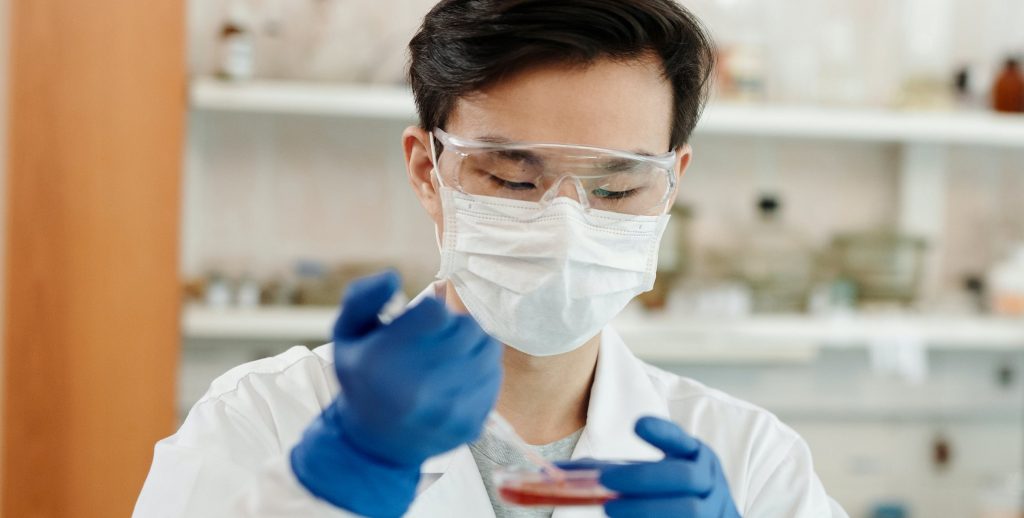Don’t trust STI apps, says Better2Know CEO
It’s the type of thing that could happen to anyone.
You meet someone, and you bring them home. Just as you’re getting intimate, you notice something suspicious on their genitals – maybe a bump, a sore, or some strange discharge.
Should you proceed with your sexual encounter or call it a night?
Turns out you don’t have to decide for yourself. There’s an app for that.

The rise of STI apps
Calmara, a new app designed for people who want to check their partners’ penises for STIs, was recently launched by HeHealth, a San Francisco-based healthcare startup. It offers to help individuals navigate the complex terrain of new sexual relationships with a tidy AI application that can diagnose STIs.
The app released by HeHealth joins a host of new healthcare apps that use AI and smartphone technology to help people optimise their health and well-being.
To the average person, this might seem like a good development. Having an app in your back pocket that could identify the symptoms of an STI in a sexual partner could help some people avoid contracting an infection themselves.
However, the risks involved in new sexual encounters aren’t quite so easily solved, and concerns are being raised about the safety and efficacy of such apps.
Data privacy issues
Privacy is one of the main issues surrounding using STI apps like Calamara.
Calmara users share a photo of their partner’s genitals with the app. The app then uses AI to analyse the photo – AI that has been trained on thousands of photos of genitals with and without STIs. These photos contain original and AI-generated images of the penile symptoms of several STIs.
Many experts say there is a concern about storing and using such large datasets and rushing such a product to market without more testing. Private health information can be easily hacked and disseminated if the technology that collects the data doesn’t have the right security protocols.
The use of such apps also raises concerns about consent. People who are concerned about the possibility of having an STI may not fully appreciate the consequences of uploading such images to a private database.
Also, the person who uses this app is not the person whose genitals are being photographed. The actual subject is not the person whose consent is sought.
These photos may also contain faces, addresses, and other identifying information.

Concerned about STIs? Try Better2Know’s Full Screen, which tests for the 7 most common STIs in the UK.
Diagnostic value
You might think that a photograph of a bump or a sore might be conclusive proof of something worrisome. However, this may not always be the case.
Even in well-lit diagnostic rooms with a trained professional, it can be difficult to diagnose a sexually transmitted infection simply from one visual inspection.
That’s why a medical professional will always order testing if they suspect their patient has an STI.
STIs are often asymptomatic
The diagnostic value of images brings us back to the crux of the matter with STIs: STIs are often asymptomatic.
Chlamydia, the most common bacterial STI in the world, is a great example of how difficult STIs can be to detect. It’s estimated that up to 75% of women and 50% of men with a Chlamydia infection experience no symptoms at all. These people may not even know they have an infection and can unknowingly pass it on to someone else.
The same is true of Herpes. Even though someone with a Genital Herpes infection is most infectious during an outbreak – which may result in the appearance of sores on the genitals – the asymptomatic shedding of viral particles means the infection can be spread even without the appearance of visible symptoms.
Some people may also mistake an STI for another, less serious infection. Infections like Syphilis, Herpes, Hepatitis B, and HIV will often share symptoms with infections like the flu, such as fever, nausea, body aches, and rashes, which often resolve on their own over time.
Someone with an STI may write such symptoms off and continue their sexual activities without getting treatment.
Final thoughts
Mike Asher, CEO of Better2Know, puts it best: “Medical AI is progressing in leaps and bounds, and this technology has the potential to benefit the medical field greatly.
“However, we shouldn’t let enthusiasm for innovation replace tried-and-true diagnostic methods.
“While the appearance of visible symptoms can indicate an STI, they aren’t definitive diagnostic markers. Just because someone doesn’t have a wart, sore, or other kind of blemish doesn’t mean they don’t have an infection. And if they do, it doesn’t necessarily mean they have an STI. The only way to know for sure is to get tested.
“People who are sexually active should get tested regularly, especially when they are starting new sexual relationships, and shouldn’t rely solely on apps to find out the sexual status of their partner.”
If you’re concerned about STIs, you should get tested. Better2Know offers a comprehensive and accurate STI testing service through clinics located all over the UK.

Don’t leave your sexual health to chance. It’s always Better2Know.
Categories
- Awards
- Bacterial Vaginosis
- Blood Tests
- Cardiovascular Health
- Cervical Cancer
- Chlamydia
- Condoms
- Covid-19
- Gardnerella
- Genital Warts
- Gonorrhoea
- Health and Wellness
- Hepatitis A
- Hepatitis B
- Hepatitis C
- Herpes
- HIV
- HIV (AIDS)
- Home Testing
- HPV
- Instant Testing
- MSM
- Mycoplasma
- News
- Non-Specific Urethritis
- PAP Smear
- Pre-Pregnancy
- Sexual Health
- STD Symptoms
- STD Tests and Screens
- STI Transmission
- Stigma
- STIs
- Swab Tests
- Syphilis
- Trichomonas
- Ureaplasma
- WSW
- Zika




